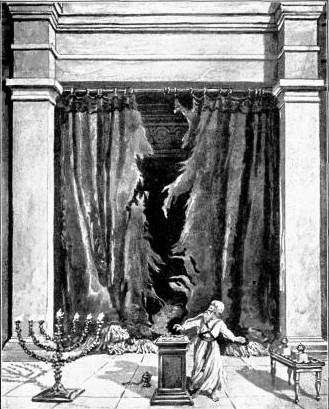I remember a breakfast at the Club of Harvard professor Samuel Huntington with a few years after the publication of his famous article, then of his book on the clash of civilizations. I wanted to see it because, in preparing his argument, he also used among other things my book The Revenge of God In those pages I explained how, in the seventies, they had developed the religious political movements within Christianity, the ' Judaism and Islam.
I wanted to draw parallels between these trans-religious phenomena, to show that, although in different ways, each of the three had been born in reaction to the crisis of modernity and the industrial world, the weakening of the Solidarity trade union and workers after the disappearance of work in factory, rising unemployment, and so on.
Paradoxically, however, Huntington had drawn only to the Islamic part of my book, using it to argue the exceptional nature of Islam. On this he established a unique vision of Islam without realizing that within that faith is opposed social forces clashed for control, or to impose a division between the secular and the religious reference in the political struggle and in the public space.
The discussion with him that day was polite, but radically different positions surfaced. A few years later came the Sept. 11, 2001. Huntington enjoyed a second triumph: the attacks by Al Qaeda, in the eyes of most commentators, validating his thesis and the absolutist character of Islam transformed the bulk of the faithful followers of bin Laden.
For my part, in the book "Jihad, The Rise and Fall of Islam", I tried to explain Islam through, in fact, decline. In fact, it was split. On the one hand, there were radical groups intended to use more and more violence in the hope that that would awaken the masses and triggered the Islamic revolution.
Those groups were a Muslim version of the Red Brigades or the German Red Army Faction. On the other hand, there were as Islamist AKP turkish, ready to participate in the political system, intended to have their doctrine then dissolve in pluralism, and to recognize that sovereignty derives from the people and not from Allah: democracy.
On 12 September, while Huntington triumphed in the media, some French journalists demanded my removal from the chair, so my writing seemed to them nonsensical. Yet today, 10 years have passed, this analysis seems correct. Islamic extremism, of which Bin Laden was the emblem, was unable to drag the masses of the Muslim world.
Al Qaeda has been reduced to a sect without fertility policy. On the other hand, authoritarian regimes and dictatorships of various Mubarak and Ben Ali, considered by the western "bulwarks" against Islamic extremism, have also become obsolete. Today the Arab peoples have emerged from that dilemma - caught between Ben Ali and Bin Laden.
They made a new entry into a universal story that saw the fall of dictatorships in Latin America, the communist regimes in Eastern Europe, and even the military regimes in the non-Arab Muslim countries, like Indonesia and Turkey. As a result, the Islamists who proposed the political participation within a pluralist system modeled on turkish now dominate, though in Egypt have not been able to impose their political vocabulary, and are - without prejudice to future developments - in follow the democratic revolutions in Arabic, rather than rely on the sovereignty of Allah.
So, I think the political sociologist was right compared to some studies that reduced the company of ideological texts. Many people with great naivete, now write that Islam has gone, the Arabs are like the Europeans or the Americans. The reality, however, is more complex. The Arabs, in fact, are building a modern, hesitating.
It is no coincidence that the first Arab revolution has taken place in Tunisia, and the most famous slogan has been expressed in French: "Ben Ali DEGAGE", "go away", which is reproduced faithfully by the Egyptians in a country where almost nobody speaks more French . The Egyptians have heard about Al Jazeera and became a revolutionary slogan.
In Tunisia there is a true cultural pluralism Franco-Arab. This helps us understand the true nature of revolution in progress: rooted in local cultures, and at the same time in the universal aspirations, with all the difficulties that entails. 


I wanted to draw parallels between these trans-religious phenomena, to show that, although in different ways, each of the three had been born in reaction to the crisis of modernity and the industrial world, the weakening of the Solidarity trade union and workers after the disappearance of work in factory, rising unemployment, and so on.
Paradoxically, however, Huntington had drawn only to the Islamic part of my book, using it to argue the exceptional nature of Islam. On this he established a unique vision of Islam without realizing that within that faith is opposed social forces clashed for control, or to impose a division between the secular and the religious reference in the political struggle and in the public space.
The discussion with him that day was polite, but radically different positions surfaced. A few years later came the Sept. 11, 2001. Huntington enjoyed a second triumph: the attacks by Al Qaeda, in the eyes of most commentators, validating his thesis and the absolutist character of Islam transformed the bulk of the faithful followers of bin Laden.
For my part, in the book "Jihad, The Rise and Fall of Islam", I tried to explain Islam through, in fact, decline. In fact, it was split. On the one hand, there were radical groups intended to use more and more violence in the hope that that would awaken the masses and triggered the Islamic revolution.
Those groups were a Muslim version of the Red Brigades or the German Red Army Faction. On the other hand, there were as Islamist AKP turkish, ready to participate in the political system, intended to have their doctrine then dissolve in pluralism, and to recognize that sovereignty derives from the people and not from Allah: democracy.
On 12 September, while Huntington triumphed in the media, some French journalists demanded my removal from the chair, so my writing seemed to them nonsensical. Yet today, 10 years have passed, this analysis seems correct. Islamic extremism, of which Bin Laden was the emblem, was unable to drag the masses of the Muslim world.
Al Qaeda has been reduced to a sect without fertility policy. On the other hand, authoritarian regimes and dictatorships of various Mubarak and Ben Ali, considered by the western "bulwarks" against Islamic extremism, have also become obsolete. Today the Arab peoples have emerged from that dilemma - caught between Ben Ali and Bin Laden.
They made a new entry into a universal story that saw the fall of dictatorships in Latin America, the communist regimes in Eastern Europe, and even the military regimes in the non-Arab Muslim countries, like Indonesia and Turkey. As a result, the Islamists who proposed the political participation within a pluralist system modeled on turkish now dominate, though in Egypt have not been able to impose their political vocabulary, and are - without prejudice to future developments - in follow the democratic revolutions in Arabic, rather than rely on the sovereignty of Allah.
So, I think the political sociologist was right compared to some studies that reduced the company of ideological texts. Many people with great naivete, now write that Islam has gone, the Arabs are like the Europeans or the Americans. The reality, however, is more complex. The Arabs, in fact, are building a modern, hesitating.
It is no coincidence that the first Arab revolution has taken place in Tunisia, and the most famous slogan has been expressed in French: "Ben Ali DEGAGE", "go away", which is reproduced faithfully by the Egyptians in a country where almost nobody speaks more French . The Egyptians have heard about Al Jazeera and became a revolutionary slogan.
In Tunisia there is a true cultural pluralism Franco-Arab. This helps us understand the true nature of revolution in progress: rooted in local cultures, and at the same time in the universal aspirations, with all the difficulties that entails.



No comments:
Post a Comment